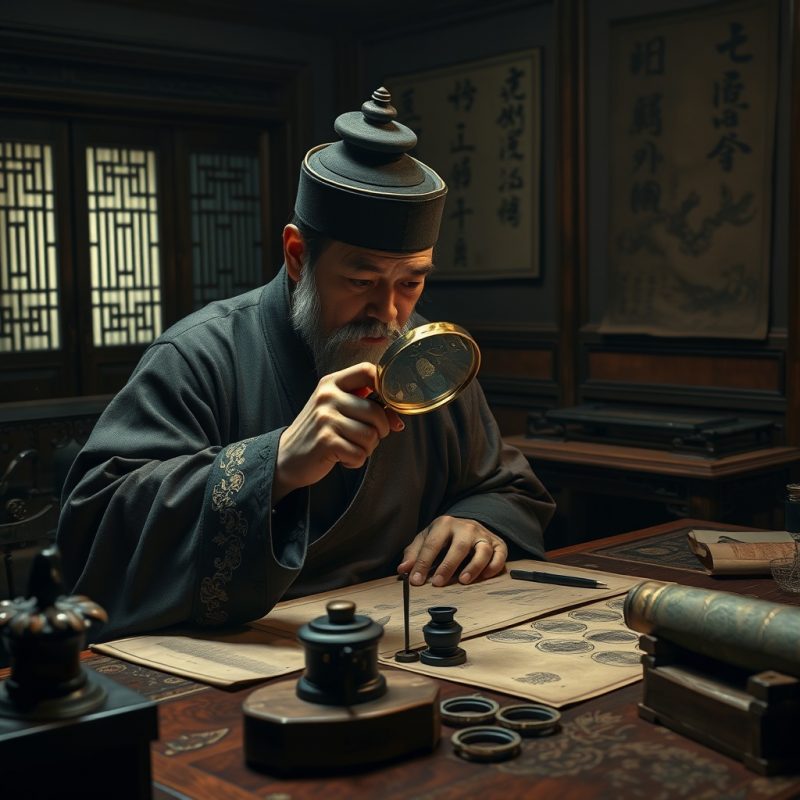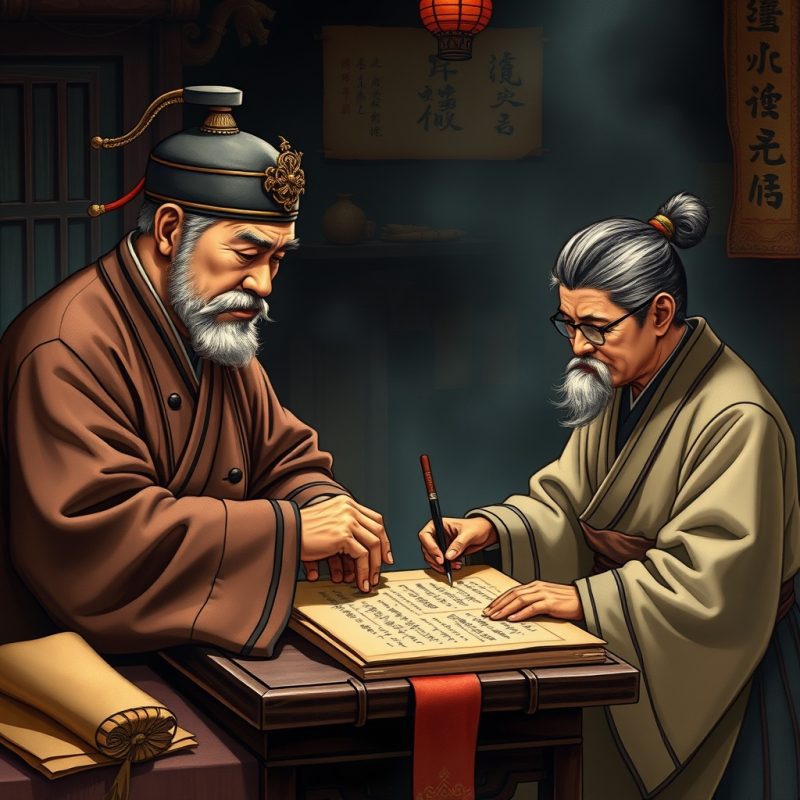
Ancient China’s Fingerprint Record
Wang Jinnian, a talented but impoverished scholar, saw the imperial examination as his only path to success. However, during the examination, an invigilator noticed that Wang’s handwriting on his current test paper was strikingly different from previous submissions. Suspicions arose that Wang had hired someone to take the earlier exams on his behalf. Wang firmly denied the accusations, defending himself by asserting that he had never cheated.
The invigilator had a sudden inspiration and suggested comparing the fingerprints on all the test papers. Upon investigation, it was discovered that the fingerprints on the earlier exams belonged to someone else, proving that someone had deliberately tried to harm Wang Jinnian. This innovative approach of using fingerprints to resolve disputes not only upheld the fairness of the examination system but also allowed Wang to continue pursuing his academic dreams.
Significance:
In modern society, fingerprints have evolved beyond mere identity verification. By integrating fingerprint patterns with the theory of multiple intelligences, we can uncover an individual’s hidden talents and guide them toward the most suitable career path. This is no longer just a symbol of fairness—it is a powerful tool for personal growth and self-realization..

Anccient Roman’s Fingerprint Record
During the Roman Empire, a merchant named Cassius signed a high-value cargo transportation contract with a distant client. To prevent disputes, Cassius dipped his thumb in ink and pressed it onto the parchment contract as a signature. This fingerprint symbolized not only his identity but also his commitment to the honesty and integrity of the transaction.
Years later, after Cassius passed away, his children used this fingerprint-marked contract to successfully reclaim an important debt. This became one of the earliest recorded uses of fingerprints in legal agreements.
Extended Meaning:
Today, AI technology can analyze fingerprints to interpret personality traits and latent potential. This capability not only strengthens trust but also empowers individuals to uncover their core values and excel in their professional journeys.

The Cultural Significance of Fingerprints
In a small village during the Qing Dynasty, a wealthy landowner named Huang accused a farmer, Li Daqing, of stealing a prized land contract with the intention of seizing the property. The villagers sided with Huang, believing Li’s defense to be weak. However, the county magistrate noticed a faint fingerprint on the contract and requested that both parties provide their fingerprints for comparison.
It was ultimately revealed that the fingerprint on the contract did not belong to Li Daqing but to Huang’s son, who had drunkenly misplaced the document. The truth came to light, clearing the farmer’s name and once again proving the irreplaceable value of fingerprints as evidence.
Extended Meaning:
Fingerprints are not only a mark of identity but also a representation of talent. Through the TMGT integrates advanced analytics with AI tools to decode individual potential, enabling them to find their irreplaceable position in the AI-driven era.
